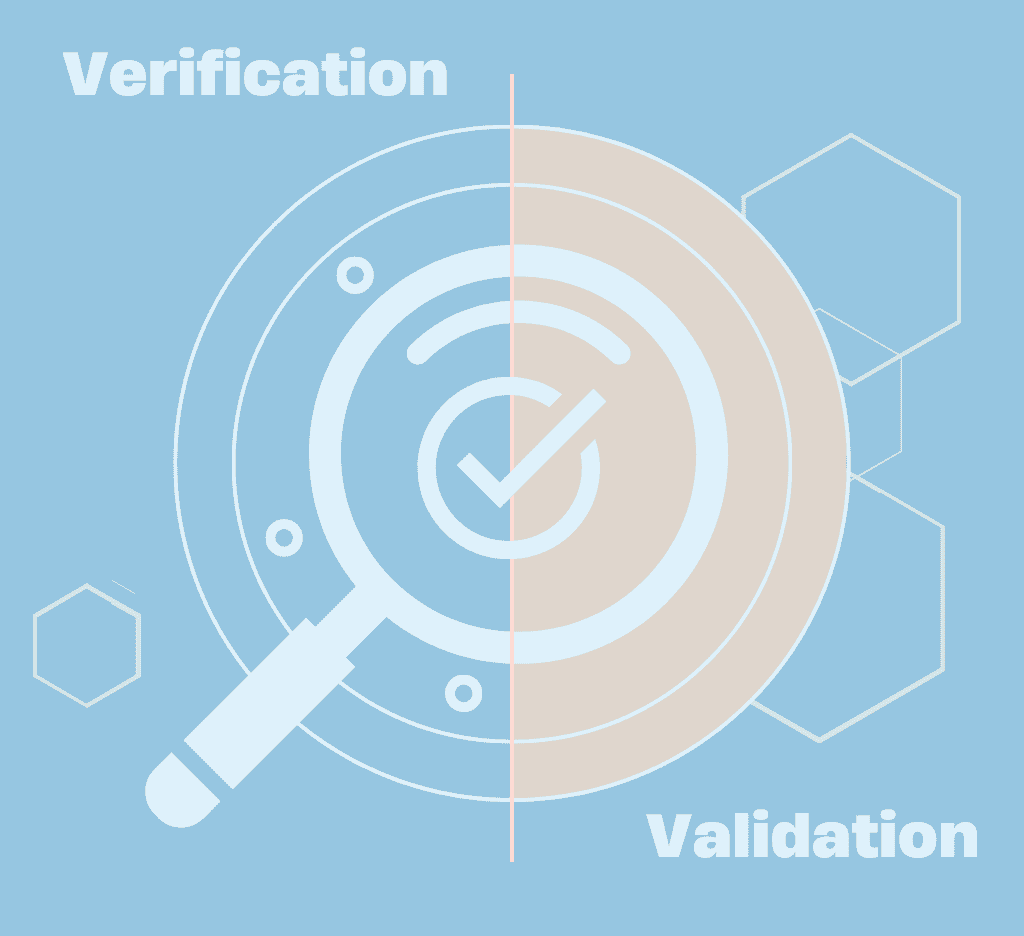Ensuring software quality and reliability is a non-negotiable aspect of development. That’s why comprehensive testing is not just necessary—it’s indispensable. Through extensive testing, we can guarantee that our software meets and exceeds the highest standards, delivering unparalleled performance and user satisfaction. Verification and validation are fundamental concepts that often confuse the various testing methods. This article provides an in-depth verification and validation analysis, highlighting their differences, importance, and roles in the software testing lifecycle
Understanding Verification: Building the Product Right
Definition and Objective
Verification evaluates work products (not the final software) to determine whether they meet the specified requirements. The primary goal of verification is to ensure that the product is being built correctly and adhering to the defined processes and specifications.
Key Activities in Verification
- Reviews: Conducting systematic examinations of documents and design artifacts to identify issues early.
- Walkthroughs: Step-by-step presentations of the design or code to peers for feedback.
- Inspections: Formal evaluations of documents and code by trained individuals to detect defects.
- Static Analysis: Automated tools analyze code without executing it to find potential errors and violations of coding standards.
Benefits of Verification
- Early defect detection reduces the cost and effort of fixing issues.
- Ensures compliance with standards and requirements.
- Improves the overall quality of the software development process.
Exploring Validation: Building the Right Product
Definition and Objective
Validation is evaluating the final software product to ensure it meets the business requirements and user needs. The main objective of validation is to confirm that the product behaves as expected in a real-world scenario and satisfies the intended use.
Key Activities in Validation
- Unit Testing: Testing individual components or modules for correctness.
- Integration Testing: Ensuring that different modules or services work together as intended.
- System Testing: Testing the complete and integrated software to verify it meets the specified requirements.
- User Acceptance Testing (UAT): Final testing based on user requirements and business processes.
Benefits of Validation
- Ensures the product meets user expectations and requirements.
- Identifies issues that may not have been detected during verification.
- Validates the functionality, performance, and usability of the software.
Critical Differences Between Verification and Validation
Focus and Approach
- Verification: Focuses on process-oriented activities to ensure the product is built correctly. It involves checking documents, design, and code through reviews and inspections.
- Validation: This process focuses on product-oriented activities to ensure the correctness of the final product. It involves actual testing of the software in a real-world scenario.
Timing and Methods
- Verification: Performed during the development phase. Methods include reviews, walkthroughs, inspections, and static analysis.
- Validation: Performed after the development phase. Methods include unit testing, integration testing, system testing, and user acceptance testing.
Outcome and Impact
- Verification: Identifies issues early in the development cycle, reducing the cost and effort required for fixes.
- Validation: Confirm that the final product meets user needs and requirements, ensuring customer satisfaction.
The Integrated Role of Verification and Validation in Software Quality Assurance
Verification and validation are complementary processes in software quality assurance. Both are crucial for delivering high-quality products that meet user expectations and adhere to requirements.
Synergy in Practice
- Combined Approach: Implementing both verification and validation ensures a robust testing strategy. Verification activities can catch early defects and issues in the design and code, while validation activities ensure that the final product is functional and user-friendly.
- Continuous Improvement: Feedback from verification and validation can improve the development process, leading to higher-quality software and more efficient development cycles.
Unosquare: Leading in Validation & Verification
At Unosquare, a highly skilled professional team performs our validation and testing, ensuring that every software product we deliver is of the highest quality. These experts are part of our Quality Assurance and Automation Center of Excellence, which maintains our rigorous standards.
Our team includes:
- Quality Assurance Engineers: They meticulously evaluate software functionality, performance, and usability, ensuring it meets all requirements and standards.
- Automation Engineers: These professionals develop and implement automated testing frameworks, increasing efficiency and accuracy while reducing time-to-market.
- Manual Testers: With a keen eye for detail, they perform exploratory testing, identifying issues that automated tests might miss.
- Performance Testers: They are focused on evaluating the software’s scalability and responsiveness and ensuring it performs optimally under various conditions.
- Security Testers: They rigorously test the software for vulnerabilities, ensuring it is robust against potential security threats.
- User Acceptance Testers: These professionals work closely with clients to validate that the software meets their business needs and user expectations.
Trust Unosquare with your Software Testing
Our Quality Assurance and Automation Center of Excellence equips these professionals with the latest tools, methodologies, and training. Our technical expertise ensures our clients receive reliable, efficient software that aligns perfectly with their business objectives. Through our dedicated team and comprehensive approach, Unosquare consistently delivers superior software that drives our clients’ success.
We invite you to contact us and discover how our expertise and dedication can drive your business forward. Contact us today to discuss your project needs and learn how Unosquare can help you achieve your goals. Check out our blog to learn more about how we support our clients and our Design & Development services.



